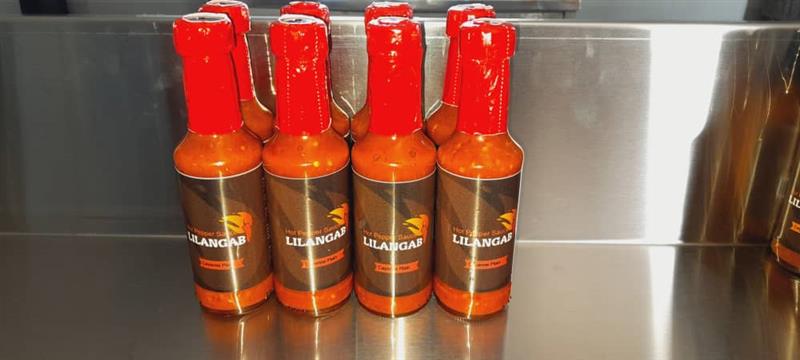A Universal Access to Quality Standards for All
December 23, 2022

Farming remains the backbone of Eswatini economy but many local farmers need to be supported to move up the value chain.
Africa has been struggling to be relevant in the world market. However, its global share of merchandise trade has reduced over the decades (2.4% of global exports in 2015). This is partly because the continent has concentrated on exporting a few primary commodities (i.e., mineral fuels, iron ores, gold, cocoa beans) with volatile prices and demand in the global markets.
African countries must develop the ability to meet international standards to participate effectively in global trade.
Being a small and landlocked country makes Eswatini vulnerable to international and regional developments. The Kingdom relies predominantly on agriculture. The sector is the primary source of income for more than 70 per cent of the population, particularly in rural areas. Smallholder agriculture remains the backbone of rural livelihoods. Rural poverty is mainly the result of small landholdings and low productivity, compounded by frequent droughts, which result in crop failure and loss of livestock. Achieving the long-term sustainable development objective of the country requires significant changes in the country’s economic and social structures.
The National Development Plan 2017/2018 – 2022/2023 for the Kingdom of Eswatini notes that restoring economic growth and laying the foundations for long-term development requires a dynamic and agile private sector that can innovate and respond to global opportunities. The availability, access and adherence to international standards offer this opportunity.
The World Standards Day 2022 theme - Standards for Sustainable Development Goals – Shared Vision for a Better World – demonstrates the importance of quality standards in achieving private sector growth. This includes helping Micro, Small, and Medium Enterprises (SMMEs) access mainstream markets, thus supporting the country's economic growth.
Agriculture remains synonymous with smallholder subsistence farming and producing essential food crops for decades. Many local farmers still need help to move up the value chain. However, early this year, the UNDP Eswatini Accelerator Lab embarked on a journey to understand why local farmers are not moving up the value chain and why agro-processed products fail to access retail markets.

This experiment revealed that local farmers barely focus on value addition.
The general understanding is that local smallholder farmers mainly focus on production/farming and barely consider value addition, where they can increase their income and create jobs. Additionally, locally produced agro-processed products seldom make it to formal markets, yet they dominate the informal sector. Under a Buy Eswatini Campaign, we experimented with a portfolio of solutions to understand and attempt to address this challenge.
One of the key lessons from the Buy Eswatini Campaign is the lack of access to certification of products with essential health and safety standards. Additionally, the Lab has also learnt that even with dedicated support to help MSMEs access the required product certification, the cost of certification is one of the most significant barriers.
We got a critical lesson from a previous government project that supported, among others, the honey value chain. We learnt that MSMEs could not get certified because of the high costs of the certification process locally, although they received technical support to align with international standards. Also, as part of this portfolio of experiments, the Lab supported two local products, honey and cayenne pepper processing groups, to set up a quality management system in their processing plants. The support costs about $5,700 (about E100 000) for the two groups, which is unaffordable to MSMEs. This cost does not include the amount of certification, which can go up to over $11 000 (about E200,000.00), making certification and alignment with essential health and safety standards unaffordable to many MSMEs. Consequently, MSMEs fail to access formal markets such as local supermarkets, forcing them to rely on the informal sector associated with poor standards and low profits.

This experiment aims to test a local certification scheme with lower costs than the International Certification Standards to allow MSMEs to access traditional retail markets.
Based on these insights, the Lab brought together strategic government stakeholders working towards promoting MSMEs through quality standards. With the MSMEs, who have been struggling to go through the certification process, the stakeholders designed a solution to address the barriers to accessing quality standards. The Lab is currently working with the Ministry of Commerce, Industry and Trade MSME Unit, the Quality and Regulatory Infrastructure Department, and the Eswatini Standards Authority (SWASWA) to develop a local certification scheme that will be affordable to MSMEs.
We developed different case scenarios to reduce the cost. The best-case scenario brought down the price to an average of $1 300 (E22,000.00), which, coming from the $11,000.00, was reasonable but still a stretch for the local MSME. Therefore, the Lab, with partners, is still exploring other means of reducing the cost to make certification affordable. As a result, the partners' benchmarking and learning visit to Kenya led to the developing of a local certification scheme. It makes certification a gradual process for MSMEs by packaging the quality management system at three levels, level three being a fully-fledged system. In comparison, the other two levels focus on a recognition scheme for local products.
This scheme considers the local context to develop a fit-for-purpose solution for and with MSMEs. SWASA is leading the development of this scheme, and the idea is to experiment with three value chains of locally produced agro-processed products.
This experiment aims to test a local certification scheme with lower costs than the International Certification Standards to allow local MSMEs to grow and access traditional retail markets and eventually access export markets – all in the spirit of leaving no one behind.

 Locations
Locations